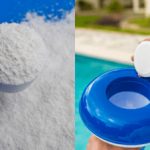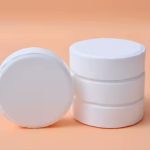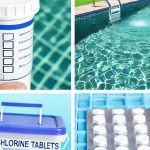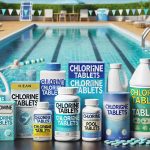Chlorine tablets are an essential part of pool maintenance, helping to keep your water clean, clear, and free of harmful bacteria. These tablets dissolve slowly, releasing chlorine into the water to kill algae, bacteria, and other pathogens, ensuring your pool is safe for swimming. While they are a convenient and effective way to sanitize your pool, it’s important to understand how chlorine tablets can impact your pool equipment over time. Improper use or over-reliance on these tablets can lead to wear and tear on your pool system, especially if not used correctly.
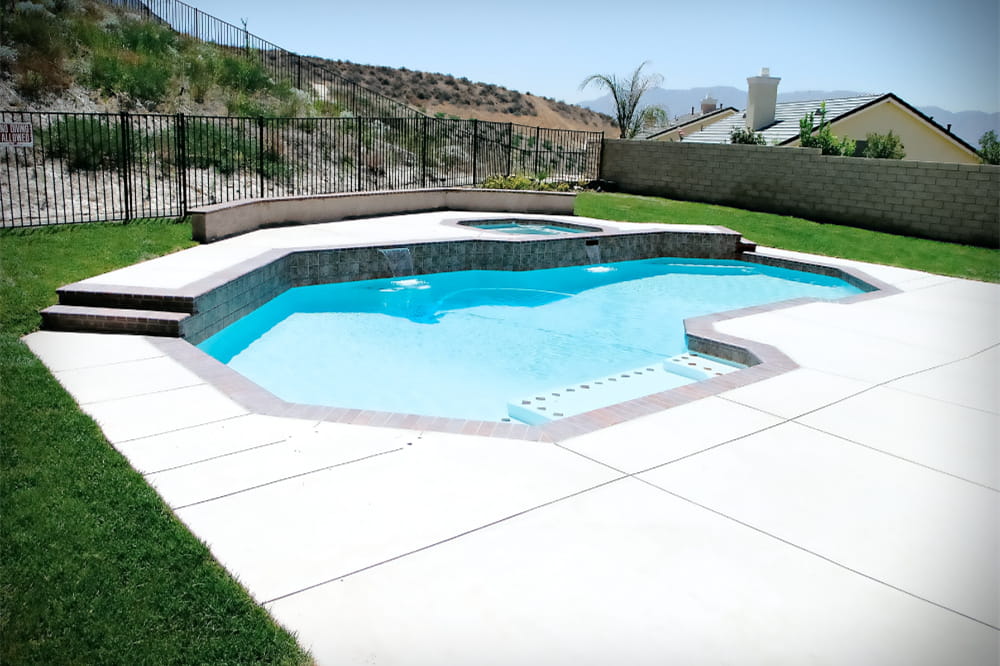
Impact of Chlorine Tablets on Pool Equipment
While chlorine tablets are a great tool for keeping your pool water sanitized, they can have some unintended consequences on your pool equipment if not used properly. Let’s take a look at the potential effects:
1. Corrosion of Metal Parts
One of the most significant impacts of chlorine tablets is their potential to corrode metal parts in your pool system. This includes pool ladders, handrails, light fixtures, and even parts of your pump and filter system. Chlorine tablets contain high concentrations of chlorine, and when these dissolve directly in water without proper circulation, the localized high chlorine concentration can lead to corrosion.
For instance, if you place chlorine tablets directly in the skimmer basket and the pump is not running continuously, the concentrated chlorine can sit in one place, causing damage to your skimmer and other nearby metal components.
2. Damage to Pool Liners
Vinyl pool liners can also be affected by improper use of chlorine tablets. If the tablets come into direct contact with the liner for an extended period, they can cause bleaching or weakening of the material. This can lead to discoloration or, in severe cases, cause the liner to deteriorate and crack over time.
Using a floating dispenser or an automatic chlorinator to introduce chlorine tablets to your pool is a safer way to avoid concentrated exposure to pool liners.
3. Pump and Filter System Wear
If chlorine tablets are placed in your skimmer basket, the high concentration of chlorine can flow directly into your pump and filter system. While your pool’s pump and filter are designed to handle regular chlorine levels, continuous exposure to elevated levels from undissolved tablets can accelerate wear and tear. Over time, this can reduce the lifespan of your pump, filter, and other associated equipment.
To avoid this, consider using an automatic chlorinator, which is designed to release chlorine tablets in a controlled manner, preventing high concentrations from damaging your equipment.
4. Impact on pH Levels
Chlorine tablets tend to lower the pH level of your pool water as they dissolve. Pool water that becomes too acidic can damage your pool’s surfaces, equipment, and cause skin and eye irritation for swimmers. When the pH drops below the recommended level (7.2-7.6), it can contribute to scaling on pool surfaces and equipment, making it essential to monitor your pH levels regularly when using chlorine tablets.
A pool with properly balanced pH levels will prevent unnecessary damage and ensure that your chlorine tablets work efficiently.
Tips to Minimize Damage from Chlorine Tablets
While chlorine tablets can affect your pool equipment, proper use and routine maintenance can help minimize these risks. Here are some tips:
1. Use a Floating Dispenser or Automatic Chlorinator
Avoid placing chlorine tablets directly into the skimmer basket. Instead, use a floating dispenser or an automatic chlorinator, which will help distribute the chlorine more evenly, preventing localized high concentrations that can damage your pool equipment.
2. Regularly Monitor pH Levels
Since chlorine tablets can lower your pool’s pH levels, it’s crucial to test the water regularly. Keeping the pH balanced between 7.2 and 7.6 will help protect your equipment and prevent the water from becoming too acidic or basic.
3. Invest in Quality Pool Equipment
Investing in high-quality, corrosion-resistant pool equipment can help reduce the impact of chlorine tablets. Look for materials like stainless steel or high-quality plastic components that are designed to withstand the effects of chlorine over time.
4. Work with a Reliable Supplier
When it comes to choosing the right chlorine products, working with a reputable chlorine tablets supplier is key. A trusted supplier will provide high-quality tablets that dissolve evenly and perform efficiently, reducing the risk of damage to your pool equipment.
Additionally, if you’re looking for affordable options, consider searching for cheap chlorine tablets from reputable sellers. However, always prioritize quality over price, as poor-quality tablets can cause more harm than good.
5. Schedule Regular Pool Maintenance
Regular maintenance and inspection of your pool equipment can help detect early signs of damage caused by chlorine tablets. Routine cleaning and servicing can extend the life of your pool system and ensure that all components are functioning correctly.
Conclusion
While chlorine tablets are essential for keeping your pool clean and safe, it’s important to be aware of their potential impact on your pool equipment. Corrosion, liner damage, and accelerated wear on your pump and filter system are just a few of the potential issues. By using floating dispensers or automatic chlorinators, regularly monitoring pH levels, and working with a trusted chlorine tablets supplier, you can mitigate these risks and keep your pool in excellent condition.

